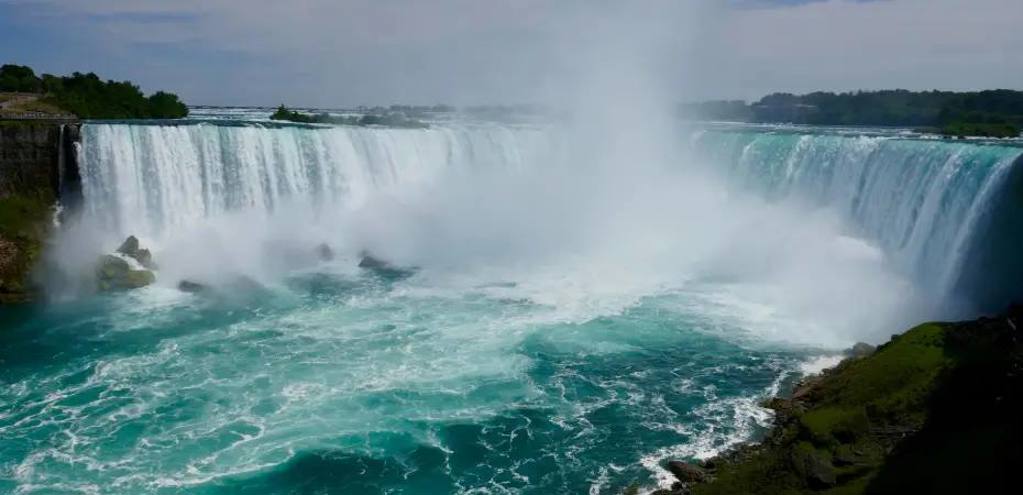Jim Diodati, the mayor of Niagara Falls, has expressed concern that the increase of asylum seekers entering the city from Quebec is straining the city’s resources.
As migrants enter Canada through Quebec’s controversial Roxham Road crossing, many are being sent to Niagara Falls to stay in hotels. While hotel accommodations are being paid for by the government, Diodati feels the road ahead is uncertain with the city’s tourist season, which is approaching rapidly.
Recently, the number of hotel rooms in Niagara Falls being used to accommodate asylum seekers has peaked at 2,000, and migrants are continuing to be relocated to different towns across Ontario.
While there is no definitive list of the countries from which the migrants originate, Haiti and Colombia have been confirmed as some examples.
Ontario is not the only province seeing an influx of migrants seeking asylum. Nova Scotia is another example of an Atlantic province welcoming migrants from Roxham Road, while provinces such as New Brunswick and Newfoundland have expressed a willingness to help migrants in a similar way.
The increasing number of migrants being transferred from Quebec is said to be beginning to cause strain on several of Niagara Falls’ industries, including the schools that have been forced to set up makeshift classrooms in their gymnasiums and libraries. According to Deanna D’Elia in an interview with CBC News, her organization has helped over 1,000 children and youth enter the city’s school system, with other local organizations stating that they have created back-to-school systems to provide children with the educational resources they will need during the transition.
Diodati has acknowledged that helping these individuals is the right thing to do and that the city has excelled in supporting the migrants in need.
“These people come here — many of them speak no English, they don’t have identification, they don’t have coats and boots and gloves,” said Diodati in a statement to CityNews. “So our church groups and community groups have been great stepping up to give them what they need.”
But approximately 40,000 people living in Niagara Falls rely on the city’s tourism industry to stay afloat, and Diodati is concerned that the influx of asylum seekers will have an impact on these citizens. Diodati has pointed out that the migrants staying in city hotels do not spend money at tourist attractions in the same way tourists do, and fears the impact that this situation may have on inhabitants of Niagara Falls.
“There’s a much, much bigger multiplier. That’s the difference. It’s all the mom and pop operators, the T-shirt people, the people making fudge. Those are the people that aren’t going to benefit because the asylum seekers don’t spend money at these places,” said Diodati in a statement to CBC News.
The city is now demanding additional support from the federal government.
Niagara Falls is not the only city facing concerns as a result of the crisis. Justin Towndale, the mayor of Cornwall, has expressed frustration at the lack of notice given to his city as buses holding migrants continue to flow in.
Like Diodati, Towndale says he is happy to help those in need, calling Cornwall a “generous community,” but adds that the consumption of all their resources would mean that his city could no longer provide support to the migrants.
Diodati reaffirms that additional funding from the federal government would create an adequate solution to the city’s struggles in the short-term, but hopes the government will become more transparent in its plan so that Niagara Falls can have an easier time planning for the arrival of more asylum seekers.

